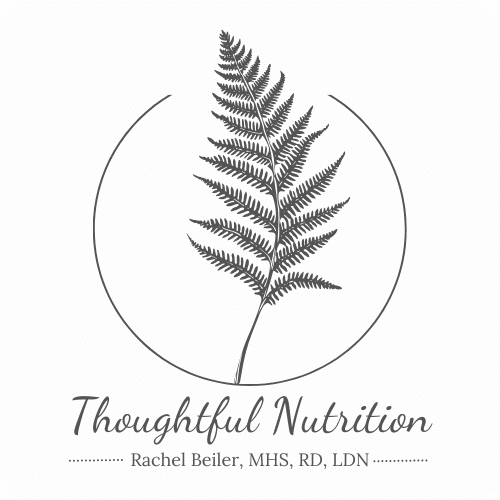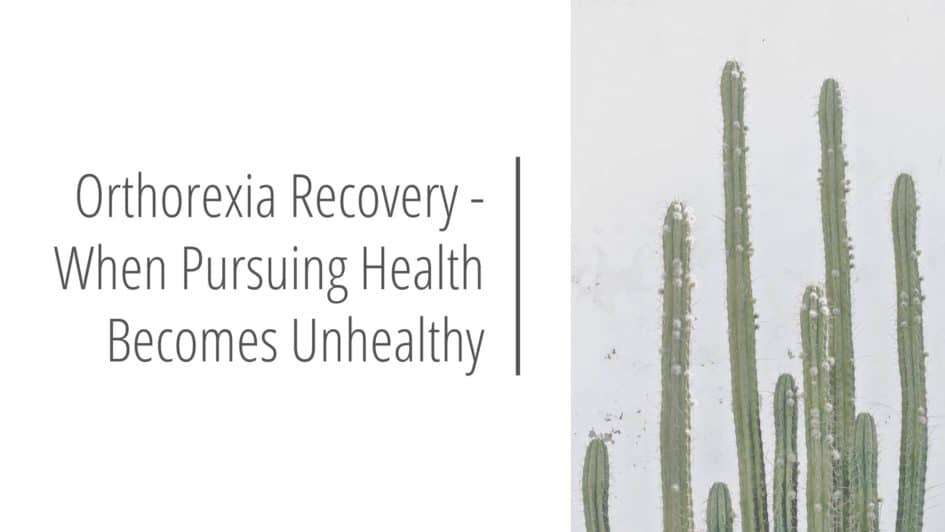Table of Contents
What is Orthorexia?
Before discussing orthorexia recovery, it’s important to first define orthorexia. Although orthorexia was first described in the 1990s, its prevalence has appeared to drastically increase over the past several years due to the rising popularity of wellness culture. Even though it is not yet a clinically recognized eating disorder diagnosis, it is important to understand what makes orthorexia is.
Orthorexia can be defined as an obsession with eating foods that are considered healthy. It is a condition that involves obsessive behavior when pursuing a healthy diet.
Orthorexia may be present when:
- Eating healthfully dominates an individual’s thoughts
- An individual’s actions (social, relational, etc) are controlled by the ability to eat foods that fall within set food rules
- Food interferes with an individual’s quality of life and removes the ability to act spontaneously
- An individual is overly concerned with food origins, preparations, and ingredients
- Failing to follow a diet pattern leads to guilt and shame
- Healthy eating impairs relationships or is used to avoid life issues.
This is not to say that eating “healthy” means someone has orthorexia. Orthorexia shows up when an individual is obsessed with healthy eating.
Warning Signs of Orthorexia
- Obsession with nutrition labels
- Obsession over a product’s list of ingredients
- A heightened concern over the health of a product’s ingredients
- Eliminating certain food groups or food components for assumed health reasons
- An inability to eat anything that is not seen as healthy, pure, or clean
- Spending hours and hours each day thinking about food
- Unusual interest in the health content of the food others are eating
- Being distressed or anxious when “healthy” foods are not available
- Obsession over following online food and healthy living accounts
- Experiencing distress or anxiousness when personal food rules are broken
- Inflexible eating patterns
- Obsession over food quality (organic, natural, farm-fresh, raw, whole, grass-fed, local, etc)
- Experiencing anxiety when around certain foods
- Malnutrition or unintended weight loss
My Orthorexia Recovery
I like to share my journey to recovery not to get attention or sympathy, but to help others know they’re not alone. Personally, I find it inspiring when I read about other people battling and overcoming the very things that I struggle with. I just want you to know that even a dietitian can struggle with and recover from disordered eating habits.
When I first decided to become a dietitian and started my college education, I quickly developed habits that reflected orthorexia. I obsessed over the nutritional quality of foods. I spent hours thinking about what my next meal would be and what I would eat during the week.
I developed strategies for dealing with social gatherings that involved “unhealthy” foods. I only ordered salads when eating out because nothing else on the menu fit my health standards. I obsessed over the number of ingredients in a food item from the store.
I would obsessively check the amount of added sugar on products. I never ate a grain product that wasn’t whole wheat/whole grain, unless I had to, which would lead me to feelings of extreme guilt and even disgust. I would get caught up in the whole “organic is better, natural is better” propaganda.
These habits resulted in me missing out on friends/family activities, developing compensatory habits for when I broke my rules, always fighting hunger, being constantly anxious over every little detail of my health, and so much more.
I struggled with this for about 2 to 3 years. I finally gave up the struggle once I became too tired, exhausted, and overwhelmed to maintain my level of “dedication.” It was wreaking havoc on all areas of my life.
When I first abandoned these habits, I almost felt out of control around food. I binged on foods I had previously labeled as “unhealthy.” It felt amazing to be able to eat whatever I wanted to. However, this behavior would last for a month or so, then I would revert back to my obsessive habits due to guilt and remorse.
After a couple of weeks, I would then re-abandon my obsessive habits and eat whatever. This cycle continued for months. It wasn’t until I discovered the principles of Intuitive Eating in early 2019, that I finally freed myself of that terrible cycle.
I have a sneaky suspicion I’m not the only one that has experienced this vicious cycle. Have you ever dealt with habits that point towards a struggle with orthorexia?
Tips and Resources for Recovery
- Reach out to the National Eating Disorder Association (NEDA). Ask about local dietitians, classes, and other resources that focus on Orthorexia recovery.
- Heal your relationship with food by diving into Intuitive Eating (IE), a non-diet, evidence-based approach to overall health and wellness. I can’t recommend this program enough. Intuitive Eating is an incredible tool that will change your life.
- Identify your personal set of food rules.
- What foods have you labeled as off-limits?
- What food details do you obsess over?
- What foods or types of foods stress you out?
- What type of hierarchy do you have for different foods? (ie organic is better, bread is bad, etc.)
- What foods consume your mind the most?
- Are there rules that are keeping you from life events such as parties, weddings, dinners with friends, etc?
- Is there a practice or habit (ie working out, number of steps, etc.) that you can’t go a day without doing?
- Have you set specific times when you’re allowed to eat and not allowed?
- Can you not eat food without looking at the nutrition label/facts?
- Despite any food rules, be sure to allow all foods in your diet.
- Give yourself grace. Gradually incorporate these changes into your life. Recovery takes time.
Lastly, you can browse my website to read articles about Intuitive Eating, Health at Every Size (HAES), body positivity, and all things anti-diet.
Thanks for reading!
Rachel Beiler, MHS, RD, LDN
Disclaimer: The information provided on or through this website is for educational and informational purposes only. The information on this website is not to be used as medical advice or as a replacement for medical care.


2 Pingbacks